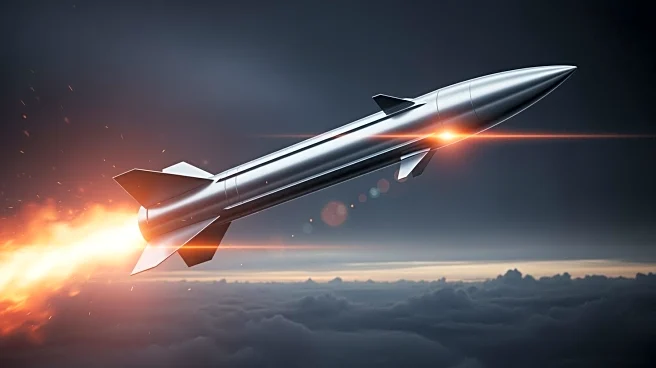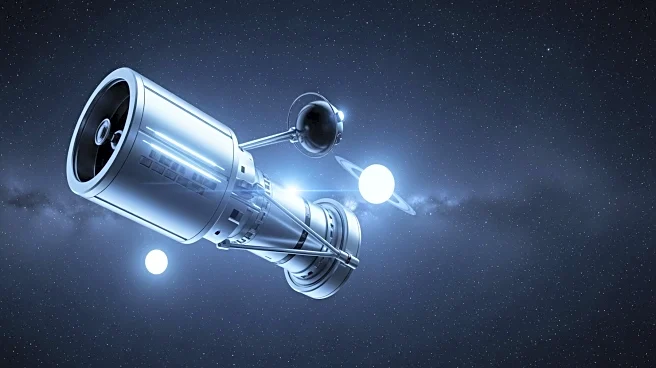What's Happening?
Russia has conducted a test of a new nuclear-capable cruise missile, as announced by President Vladimir Putin. The missile, known as the Burevestnik, reportedly covered a distance of 14,000 kilometers during a key test, according to Gen. Valery Gerasimov,
Russia’s chief of general staff. The missile, also referred to as Storm Petrel, remained airborne for 15 hours, showcasing its potential to evade existing missile defenses due to its extensive range and unpredictable flight path. The test is part of a broader exercise involving Russia's strategic nuclear forces, which included the launch of intercontinental ballistic missiles and long-range cruise missiles from Tu-95 bombers. These maneuvers are intended to test the readiness and skills of Russia's military command structures.
Why It's Important?
The successful test of the Burevestnik missile signifies a potential shift in global military dynamics, particularly concerning nuclear deterrence and defense systems. The missile's ability to travel long distances and evade current defense mechanisms could challenge the strategic balance, prompting concerns among NATO countries and the United States. This development may lead to increased tensions and an arms race, as nations might seek to develop or enhance their own missile defense systems in response. The test also underscores Russia's commitment to advancing its military capabilities, which could influence geopolitical relations and security policies worldwide.
What's Next?
Following the test, President Putin has instructed military officials to determine the missile's potential uses and prepare the necessary infrastructure for its deployment. This suggests that Russia may soon integrate the Burevestnik into its military arsenal, potentially altering its strategic posture. The international community, particularly NATO and the U.S., may respond with diplomatic measures or by accelerating their own defense initiatives. Additionally, the postponed summit between President Putin and President Trump on Ukraine could be rescheduled, potentially addressing these developments and their implications for global security.
Beyond the Headlines
The introduction of the Burevestnik missile raises ethical and strategic questions about the future of nuclear deterrence and arms control agreements. As nations develop more advanced and potentially destabilizing weapons, the risk of miscalculation or accidental escalation increases. This situation highlights the need for renewed dialogue and international cooperation to address the challenges posed by emerging military technologies and to prevent a new arms race.














